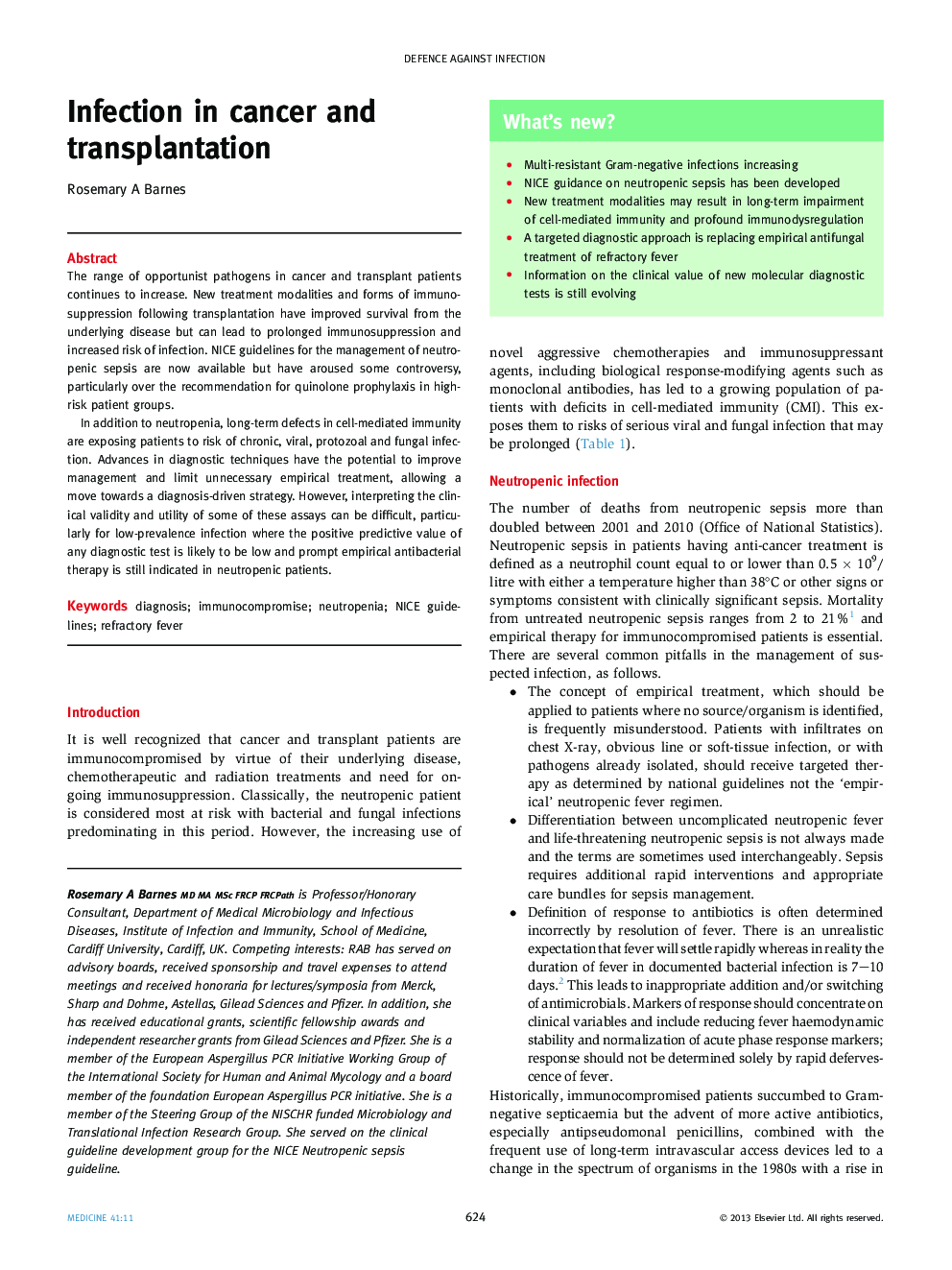| Article ID | Journal | Published Year | Pages | File Type |
|---|---|---|---|---|
| 3806756 | Medicine | 2013 | 4 Pages |
The range of opportunist pathogens in cancer and transplant patients continues to increase. New treatment modalities and forms of immunosuppression following transplantation have improved survival from the underlying disease but can lead to prolonged immunosuppression and increased risk of infection. NICE guidelines for the management of neutropenic sepsis are now available but have aroused some controversy, particularly over the recommendation for quinolone prophylaxis in high-risk patient groups.In addition to neutropenia, long-term defects in cell-mediated immunity are exposing patients to risk of chronic, viral, protozoal and fungal infection. Advances in diagnostic techniques have the potential to improve management and limit unnecessary empirical treatment, allowing a move towards a diagnosis-driven strategy. However, interpreting the clinical validity and utility of some of these assays can be difficult, particularly for low-prevalence infection where the positive predictive value of any diagnostic test is likely to be low and prompt empirical antibacterial therapy is still indicated in neutropenic patients.
